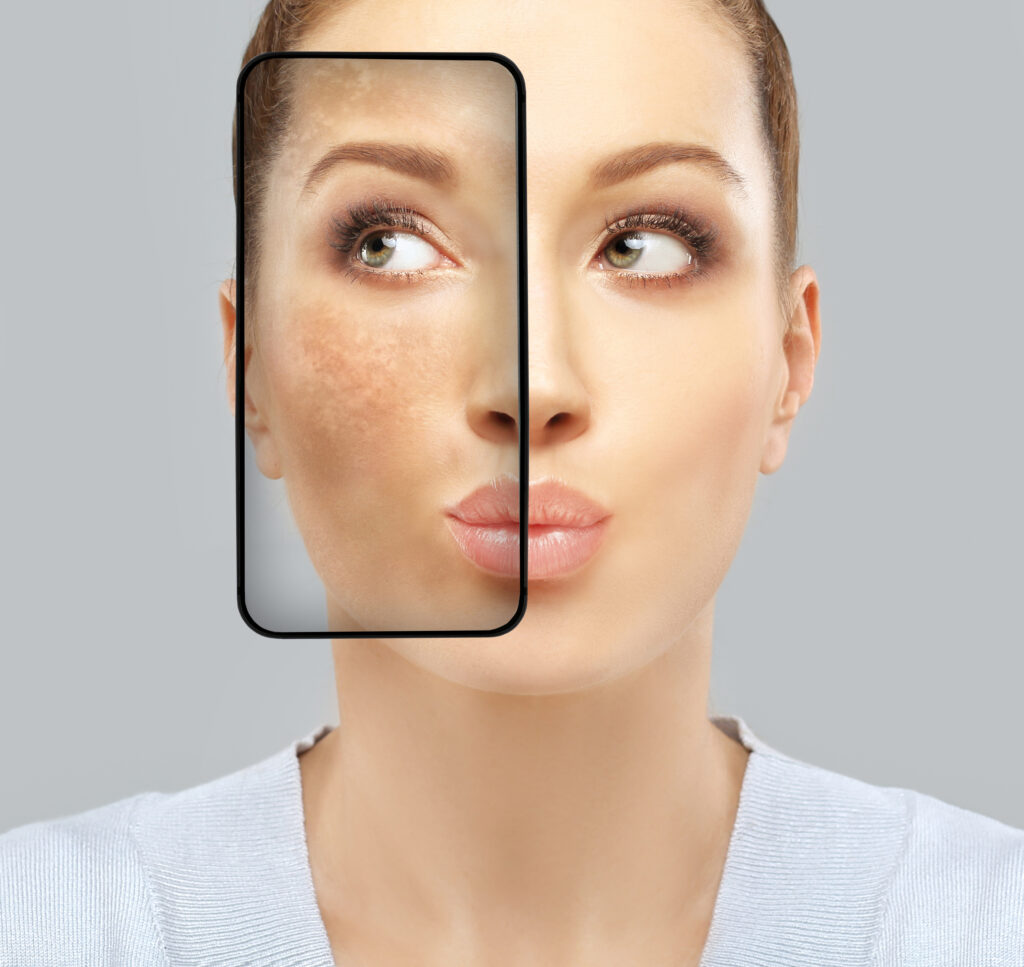Pigmentation disorders are a broad category of skin conditions that disrupt the uniform color of the skin, leading to aesthetic concerns and potential emotional distress. While these disorders share the common feature of pigment alteration, their causes, manifestations, and treatments vary significantly.
At Venus Skin Clinic, we understand the unique challenges these conditions present and offer advanced diagnostic and therapeutic options to help you achieve healthy, even-toned skin. Here’s a closer look at five key pigmentation disorders:

Overview: Vitiligo is a chronic, acquired depigmentation disorder characterized by the development of well-demarcated white patches on the skin. It occurs when melanocytes—the pigment-producing cells—are destroyed, likely due to an autoimmune response.
Beyond the physical symptoms, vitiligo often has profound psychosocial effects. Visible patches can impact self-esteem and social interactions, especially in cultures that emphasize uniform skin tone.
Overview: Melasma presents as symmetrical brown-to-gray patches, predominantly on the face—particularly the cheeks, forehead, and upper lip. It’s triggered by hormonal fluctuations (e.g., pregnancy, contraceptive use), UV exposure, and genetic predisposition.
Although melasma is benign, its chronic and relapsing nature can significantly impact a person’s confidence and quality of life.
Overview: PIH is a reactive pigmentation response following skin inflammation or injury—such as acne, eczema, or cosmetic procedures. It’s more prevalent in darker skin types due to increased melanin activity.
PIH often manifests as flat, darkened macules at the site of inflammation. While not harmful, it can be a cosmetic concern, especially for individuals with chronic skin conditions.
Overview: Albinism is a rare genetic condition resulting from mutations affecting melanin synthesis. This leads to generalized hypopigmentation of the skin, hair, and eyes.
Overview: Unlike the other disorders, tinea nigra is a superficial fungal infection caused by Hortaea werneckii. It presents as asymptomatic, dark brown to black patches, typically on the palms or soles.
Pigmentation disorders encompass a diverse spectrum of conditions, each requiring a nuanced approach tailored to the underlying cause, skin type, and patient concerns. At Venus Skin Clinic, we combine advanced medical expertise with compassionate care to help you achieve radiant, healthy skin.
Consistent sun protection, early intervention, and a personalized care plan—crafted by the experts at Venus Skin Clinic—are fundamental for achieving healthier, more even-toned skin.
If you’re dealing with persistent pigmentation issues, get in touch with Venus Skin Clinic. Our experienced dermatologists offer customized, evidence-based treatments to restore your skin’s natural tone and health.
Contact us at 7770002118 today!
 Pigmentation Treatment in Chennai at Venus Skin Clinic: Achieve Glowing, Even Skin Tone
Pigmentation Treatment in Chennai at Venus Skin Clinic: Achieve Glowing, Even Skin Tone
 Effective Chemical Peel for Pigmentation – Venus Skin Clinic
Effective Chemical Peel for Pigmentation – Venus Skin Clinic
 Understanding Laser Hair Removal: Your Friendly Guide
Understanding Laser Hair Removal: Your Friendly Guide
 Benefits of Cosmelan Peel for Pigmentation
Benefits of Cosmelan Peel for Pigmentation
 Chemical Peel for Pigmentation: Say Goodbye to Skin Imperfections!
Chemical Peel for Pigmentation: Say Goodbye to Skin Imperfections!
 HydraFacial Treatment Cost in Chennai: What You Need to Know
HydraFacial Treatment Cost in Chennai: What You Need to Know
 IV Glutathione Treatment in Nungambakkam – Achieve Radiant & Even-Toned Skin
IV Glutathione Treatment in Nungambakkam – Achieve Radiant & Even-Toned Skin
 Underarm Whitening Treatment in Chennai – Get Even-Toned Skin Today!
Underarm Whitening Treatment in Chennai – Get Even-Toned Skin Today!
 Low Charges Best Quality Care | Call 7770002118 for Hydrafacial Treatment in Chennai at Venus Skin Clinic
Low Charges Best Quality Care | Call 7770002118 for Hydrafacial Treatment in Chennai at Venus Skin Clinic
 Mole Removal in Chennai – Safe, Effective, and Scar-Free Treatment at Venus Skin Clinic
Mole Removal in Chennai – Safe, Effective, and Scar-Free Treatment at Venus Skin Clinic
 Skin Tag Removal in Chennai – Safe & Effective Treatment at Venus Skin Clinic
Skin Tag Removal in Chennai – Safe & Effective Treatment at Venus Skin Clinic
 Advanced Skin Brightening Treatment in Chennai at Venus Skin Clinic
Advanced Skin Brightening Treatment in Chennai at Venus Skin Clinic